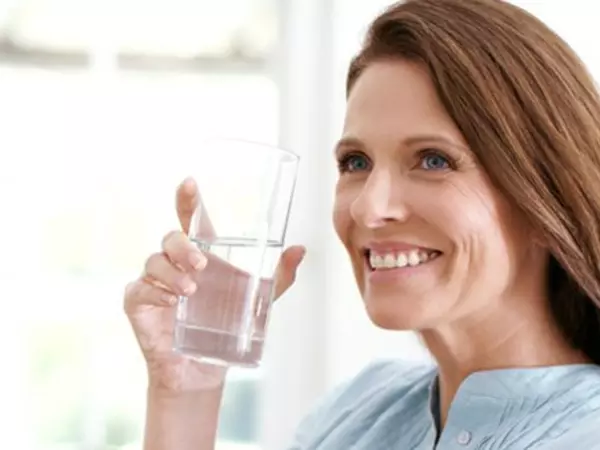
5 diet tricks that don't really work
Diet advice is everywhere. It's splattered all over TV, social media and radio. It plasters billboards and magazine covers. It comes unsolicited from friends, family members, co-workers and even random strangers! It's unavoidable and usually ineffective. Here are some of my favorites:
- Drink detox water. The truth is that water infused with added fruits, veggies and herbs will do the same thing inside your body as water without them. There are plenty of benefits to drinking plain water, so if adding these things encourages you to drink more then by all means add them! Just know that your liver and kidneys will take care of all the "detoxing" your body needs, no matter how much lemon or cucumber you put in your ice cube trays.
- Chew on celery to ease the desire for "something crunchy." While celery is a perfectly respectable food choice, it's your behavior that is of more concern. Eating in the absence of physical hunger builds a bad habit of using food to soothe non-food needs. Munching on something, even vegetables, won't make the "something crunchy" craving go away. Most cravings will go away on their own–the best way to speed up this process is to distract yourself with a non-food activity such as going for a walk or doing some household chores.
- Drink two big glasses of water before meals to decrease portions. Using water to subdue physical hunger rarely works because physical hunger is your body's way of telling you "I need calories, nourishment or fuel." In fact, this practice often backfires. While you may leave the table feeling full, you may find that you are hungry shortly after the meal, which often leads to increased cravings and overeating later. This is because water is calorie-free and provides no real fuel for your body. If you are physically hungry, you need to eat, not drink.
- Cut 500 calories a day to lose a pound of weight each week. Here is the concept behind this advice: there are 3,500 calories in one pound of fat. Therefore, cutting 500 calories per day (3,500 calories every seven days) will result in one pound of fat loss per week. However, it just doesn't always work out that way. For starters, we cannot compute our daily energy needs to the specific calorie—our calorie needs change from day to day depending on many factors. Although cutting 500 calories each day may promote weight loss initially, you will actually have to continue to cut more and more calories to make the practice sustainable. Luckily, your body already has a built in "gas gauge"–your physical hunger and fullness cues! They should be the driving force behind how much you eat and drink in a day.
- Substituting "healthy" foods for "unhealthy" cravings. Cravings, like munching, are more of an issue of behavior than an issue of food choice. So how can you really conquer your cravings? Start by asking yourself, "am I hungry?" If you are you need to eat. If you make the decision to eat what you are craving, listen to your body and stop eating when you are full. You might also balance the food you are craving with other more nutritious foods. If you are not hungry, ask yourself "what am I (bored, tired, procrastinating, stressed, anxious, etc.)?" Once you determine this, you can choose non-food actions to remedy the real problem. It is important to recognize, however, that everyone gets multiple cravings every day. If you eat something–even a perceived healthy food–every time you get a craving, is that a healthy behavior? And let's be honest, how often does eating carrots instead of chips really satisfy that craving?!
When it comes to living a healthy lifestyle, well-meaning diet tricks are rarely the key to success. Healthy lifestyles aren't glamorous or cutting edge. They aren't made of quick fixes and magic pills and potions. Instead, living a healthy lifestyle is learning to recognize and honor your hunger and fullness, fuel your body, balance the healthy food with the fun and find non-food fixes for wants that aren't hunger.
Related articles

Pinched nerves, sciatica and carpal tunnel

Essential tips for preventing sports injuries

Water or electrolyte drinks: What's better for athletes?

What helps with bloating?